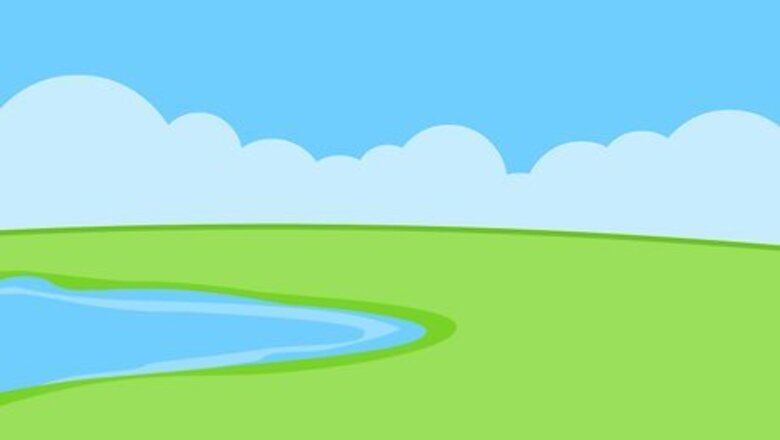
views
Preparing to Go to the Campsite
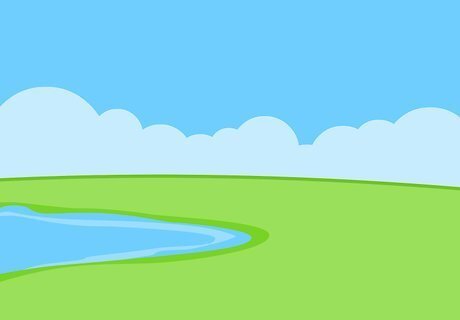
Find a good camp site. You could look on the internet and find a site that has good reviews and good ratings. If you have an idea of the place you want to go, look for an established camp site on a map. Ask friends or family who go camping for any suggestions. Find out about the rules and regulations of the camp-site. Are large groups of people camping together allowed? Is the camp-site just for caravans or can you take a tent there too? How large can your tent be? Are pets allowed? Find out about the facilities. You will want a camp site with good toilet and shower facilities as well as water supplies. Do you want a site with entertainment, such as bars? Do you want a shop on the site, or a cafe? Or a swimming pool? Or do you want a more basic camp site with nice scenery?
Find the perfect site for you. No matter where you camp, you will need to find a place that has even ground to pitch your tent on, but not completely flat in case of rain. Make sure there is available room and book a space.
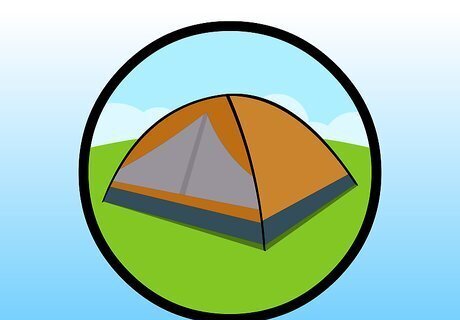
Make sure you have a good tent. If you're just trying out camping, a used tent is great for your first trips. Try to find one with a built in sheet underneath to prevent cold and insects from getting inside. Buy another ground sheet to put underneath the tent to protect it. Keep in mind that a good tent should have at least one window, and enough space for all people who are going. You should have enough room for everyone to sleep, and more room for storage. Decide if you want a tent with one main door or several. Try to face the doors away from the wind when you pitch your tent, and make sure the doors zip fully closed. Make sure you have some good quality pegs to pitch your tent with and a tool such as a hammer or mallet to put them in with. You should know how to pitch your tent before you leave for the camp site, so practice back at home before you go. In case of bad weather, you should try to find a tent with a porch or an awning.
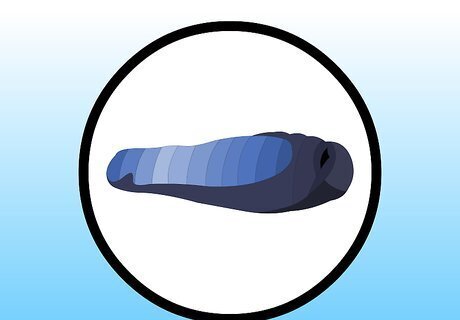
Organize where you are going to sleep and what you are going to sleep on. Whether you are sleeping on camp beds, air beds, in a sleeping bag on the floor, or on a camping mat, make sure you have at least one of these things for each person going with you and for yourself. When you are practicing putting up your tent, you could try fitting in all these beds to see if you have enough space. If you are sleeping on air beds, make sure you take a pump to inflate them and a repair kit in case they get damaged. Remember to bring anything else such as sleeping bags, extra sheets/blankets or pillows.
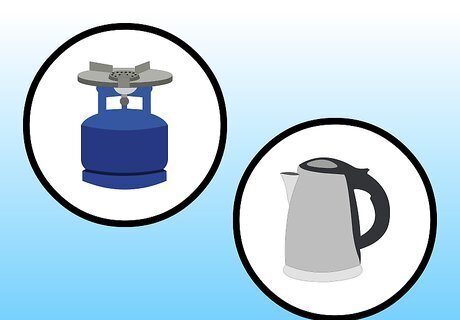
Organize where you are going to eat and how you are going to cook. Buy a good camping stove. If you have a gas stove, make sure you have a gas canister to power it. Remember to bring all your cooking equipment, such as lightweight pots and pans, something to eat off, utensils and of course, food. You can get water from camp sites as nearly all have water supplies. If you want to make hot drinks such as tea or boil water, buy a small kettle to put on the stove. Sort out where you are going to eat. Buy fold up chairs and tables and decide whether you are going to put them inside or outside. Put your stove outside the tent, as tent material is highly flammable and it could cause a fire. Buy some wind breaks to shelter the stove in case you can't light it in the wind. If your camp site does not have a pot washing facility, take a bowl to wash your pots in straight after you have finished your meal so that animals and insects are not attracted to dirty dishes around your tent. Remember to take some washing up liquid and something to clean dishes with, along with tea towels. Remember to take other essentials with you such as can openers, bottle openers, napkins or tissues, a tablecloth for your table and anything else you might need.
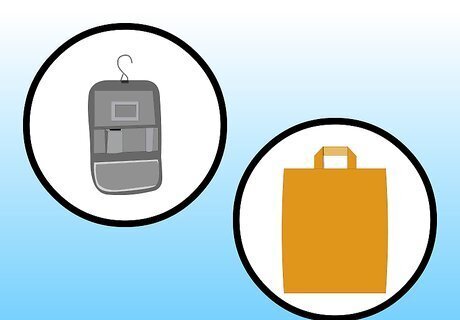
Organize other important equipment that you may need. Take some boxes or containers for storage, for things such as food. Take some plastic bags to fasten opened food bags in. Take a first aid kit with things such as plasters and bandages. Bring items to help your camping trip be more comfortable, such as sun cream, toilet paper, baby wipes to freshen up, and insect repellent. Bring a toiletries bag which includes things like soap, shampoo, toothpaste, toothbrushes, towels, wash cloths, and any other cosmetics or toiletries you want to take. Bring a backpack in case you go walking or exploring and need to carry a lot of things. Bottles of water or empty bottles to fill up would be perfect for this reason too. Other things could include cameras, books, paper and pens, alarm clocks, tape and string/rope just in case you need it. Waterproof material/cover is needed for your stove.
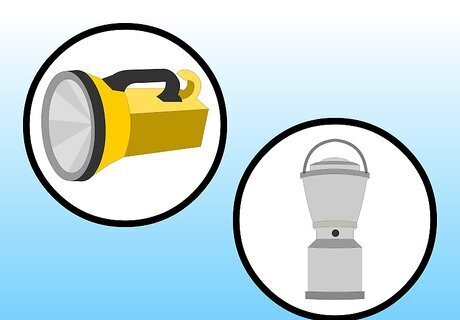
Bring a source of light with you. Your camping trip will be miserable if you forget lighting. Imagine trying to find your way back to your tent in the dark without a torch. You especially need light if you have children camping with you. Bring some torches; larger ones for in the tent, and smaller, waterproof ones for going to the toilet block in the dark. Other lighting methods include lanterns or lamps that run on liquid fuel. Make sure you bring spare batteries or fuel for your lights.
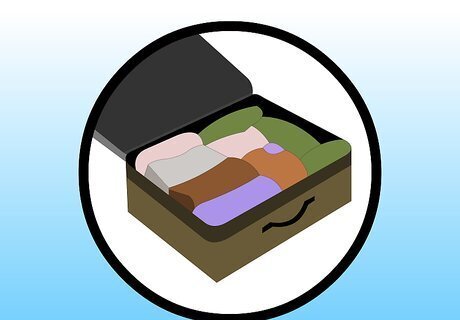
Pack enough clothes for the amount of time you are camping. Make sure the clothes match the weather at the campsite as well. If you are camping in the summer, don’t forget clothes such as shorts, thin tops, swimsuits, slip flops or sandals. Even if you do go in the summer, bring a jumper, as it can get cold at night and if you are walking a long way to the toilet block, warm clothes can help. Your camping holiday will be ruined if you are too cold. If it is colder, bring jumpers, coats, trousers or long sleeved tops with trainers or boots. Don’t forget enough underwear and thick socks if its cold. Bring something to sleep in such as long pajamas, as it gets cold at night.
What to do When you Get to the Campsite

Pitch your tent. You should have already practiced putting up your tent, and you should try to do it as soon as you get there, before it gets dark. If you are allocated a certain space, make sure you stay in this area and put your tent up in the right place. If not, find a place with clear, even ground but preferably with a slope. Choose a place without any over hanging branches or places where there are lots of insects.
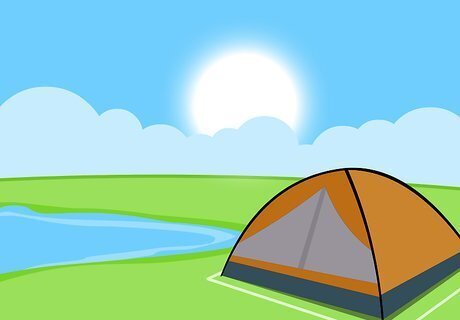
Organize your tent. Make sure everything has a place. Sort out all the beds, and if your tent has separate rooms for sleeping, zip these up to prevent insects from getting in. Put your food into the storage boxes and make sure they are sealed so nothing can get inside. When you go into the tent, take your shoes off outside to help keep your tent clean, and if your tent has an insect net, zip this up after you. Make sure you know where the first aid kit is and where your torches are. Hammer in your wind breaks if you are using them. They can be very useful to shelter you and your tent, and you can hang towels round the posts to help them dry.
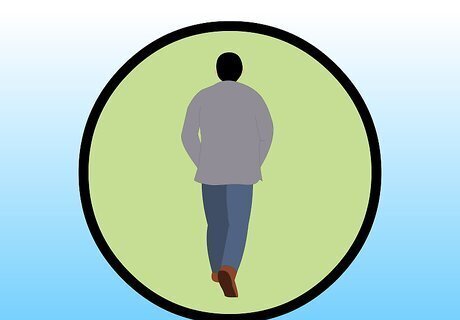
Explore your campsite. Find the closest toilets and make sure they are clean. If the showers are not in the same area as the toilet block, locate them. Find the laundry/shop/entertainment if your site has these, and find out opening times or other information about certain facilities. Walk around and see the scenery of your camp site, and enjoy it.
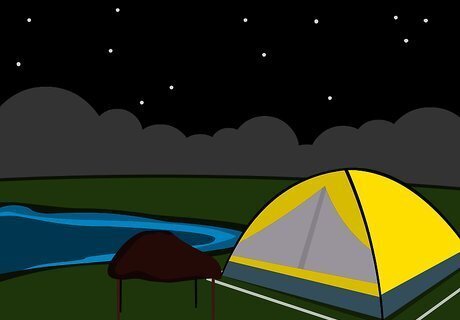
Develop a routine for night times. Make sure you cover up your stove with the waterproof cover. Fold up your chairs and table and bring them into the tent at night. Bring in any personal belongings and things like footballs or sports equipment, or put them in the boot of your car for the next morning. Zip the tent up securely, and put on a torch or light in the tent so you can see what you are doing. Make sure everyone is inside and in their sleeping bags. If you are worried about your belongings, lock anything valuable in your car in a hidden place such as your glove compartment. Or you could keep it next to your sleeping area. Make a last trip to the toilet block to brush your teeth, and don’t forget a torch or two to find your way back. Decide whether you are going to have a shower or not. Decide whether to get changed at the toilet block or in your tent. If your tent has separate rooms or partitions, you can get changed at the tent. You could use a plastic bag for dirty clothes or put them into an empty suitcase if you are waiting till you get home to wash them, or store them somewhere to wash/take to the laundry the next day. If you are camping with children, ensure that everyone pees before bedtime, and have a brief discussion about what should be done if they need to go again at night. In the wake of COVID-19, boys and men are encouraged to pee against a tree and use the campground facilities only for pooping.
Camping in the Campsite
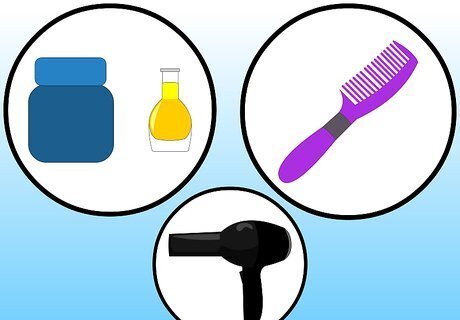
Make arrangements for showering. If you are showering on the camp-site, check out the showers beforehand. Check if they are free or coin operated. Also, check if there is a hair-dryer in the shower block and if you have to pay to use it, or if you will have to leave your hair to dry naturally. Don’t forget to bring towels, shampoo, and soap with you. Always wear old flip flops when going in the shower to protect your feet from germs. To make sure a shower is always available, do not use them at peak times. Whilst everyone will use them in the morning or evening, use them very early in the morning, in the late afternoon or late at night. Don’t be too fussy about your looks when camping. Leave curling irons, straighteners, excessive make up, and lotions at home.
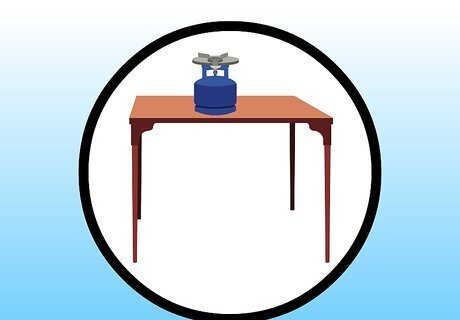
Cook and eat a meal. Set up your stove and wind breaks outside, making sure that your stove is on a stand. When you have finished cooking, wash your dirty pots in a bowl or put them in a bowl and take them to a pot washing area if your camp site has one of these. If there is bad weather, put your stove in the porch or awning of your tent, but keep all heat away from the actual material. Securely store leftover food to eat later; seal opened bags and make sure everything goes back into the storage boxes. Put waste food into rubbish bags and keep them sealed and off the ground. You could tie the rubbish bag around the post of your wind break to get it off the ground.
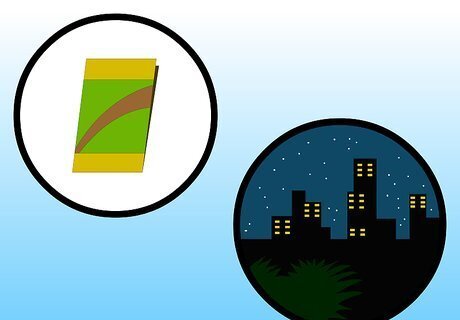
Find out about local attractions and visit them. Some camp sites have leaflets in shops or cafes about local things to see, but if not, ask someone who works there or drive around the area. If the camp ground has bikes available, consider renting one on the first day to explore the area, and ask for a map. Take a walk around the local town/village and go shopping or see some scenery. Take a walk in the evening and listen to the sounds of the animals around you.
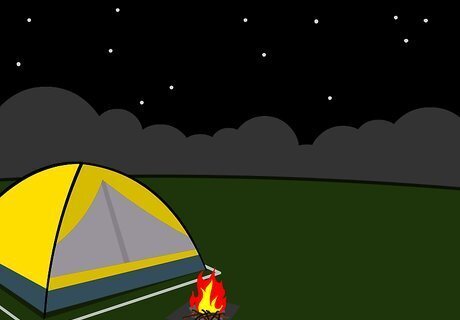
Do some outdoor activities. Don’t spend your camping holiday just sitting in your tent! Camping is about being outside and enjoying nature and everything around you. So get outside and breathe in the fresh air whilst doing something fun! If you have brought along your bikes, go for a bike ride. Go for a walk or a hike to see some of the scenery and get away from everything. Go wildlife spotting or fishing. There is lots to do wherever you go. If it rains or there is bad weather, look for indoor activities such as a museum or a nature centre. At night, go outside and look at the stars for a while. Or you could make a campfire and sit around it at night. If you do make a campfire, make sure you do it safely and learn how to beforehand. Also, check if your camp site allows camp fires to be made and follow the rules if it doesn’t.
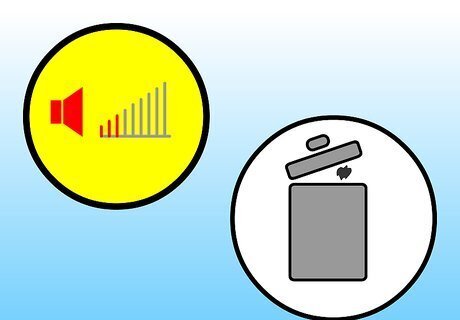
Be respectful. The camping experience is for everybody, so don’t ruin it for anyone else. This means keeping pets under control if you bring them along and cleaning up their mess, keeping music at a sensible volume and turning it off when it starts to get late, clearing up your litter and waste, leaving bathroom and shower facilities clean and following any speed limits on your site. Above all, respect the camp sites rules and it will be a better trip for everyone.












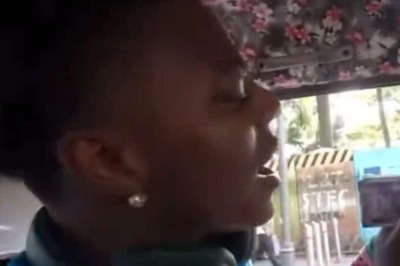





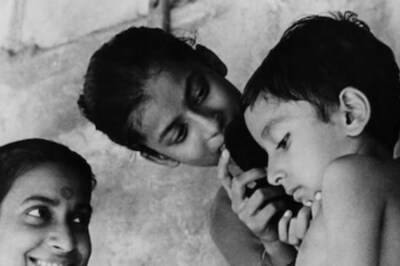

Comments
0 comment